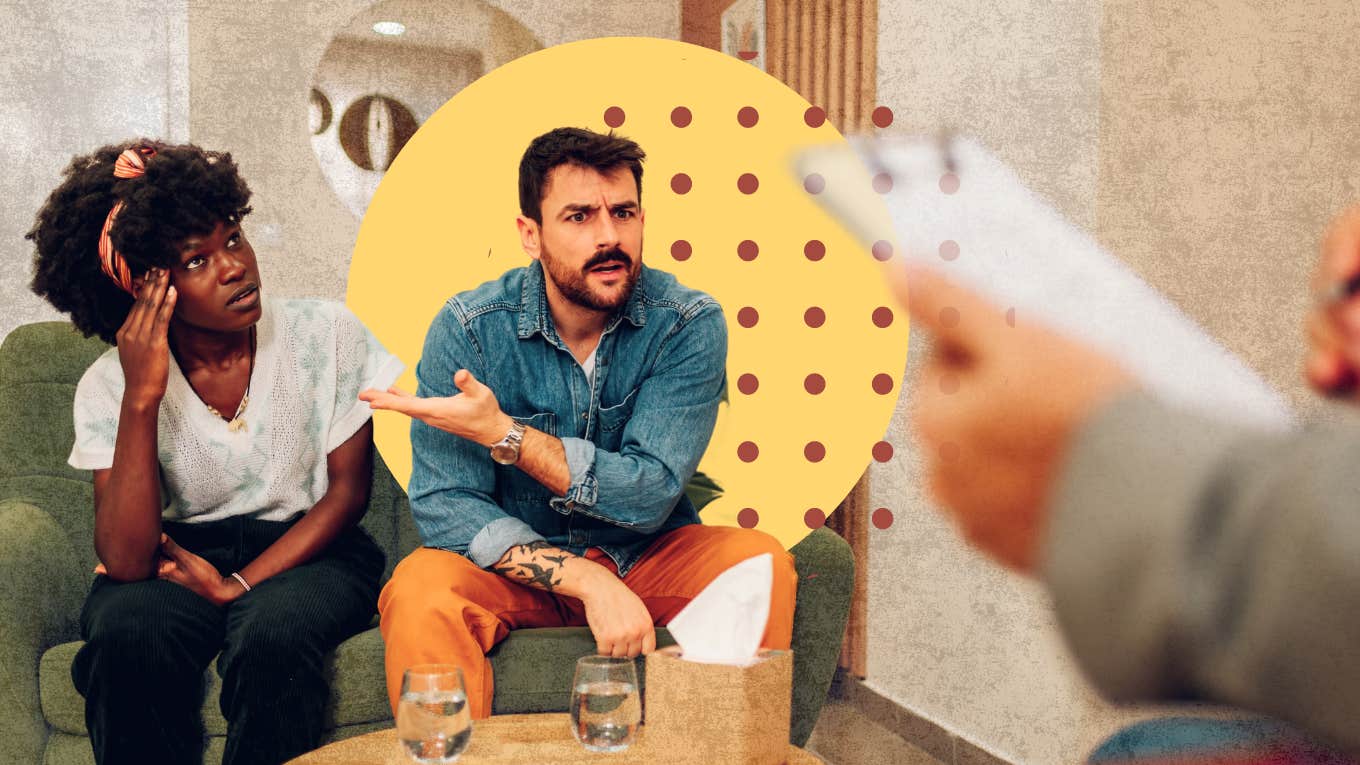Psychologist Reveals 5 Unusual Reasons Why A Spouse May Refuse Couples Counseling
Nobody ever regretted working on themselves first.
 Zamrznuti tonovi | Shutterstock
Zamrznuti tonovi | Shutterstock Many people tell me that their spouse won’t agree to come into couples counseling, which is why I have two podcast episodes discussing what you can say to convince them that this is necessary. However, it is also important to understand why they feel as they do.
Here are 5 unusual reasons why a spouse may refuse couples counseling:
1. There is abuse
When there is physical abuse and one person is very scared of the other one, couples counseling cannot work. The partner who is scared of the other will be scared to mobilize any new skills or assert themselves in any way, because of the potential fallout.
In the case of abuse, individual therapy is recommended to help the abused partner build the confidence to seek safety. There are also programs for abusers to learn to stop abusing (which is usually if not always behavior that they experienced as a kid).
Either way, if a couple struggling with active dangerous physical conflict, marital therapy is not a good choice, as the conflict discussed in the session can escalate the situation and be something that one partner uses against the other after the session.
2. Husbands fear that their issue, lack of physical intimacy, will be ignored or downplayed by a female therapist
This is often valid. If you are struggling with any intimacy issue, this must be addressed alongside other issues like communication or division of labor. Otherwise, one partner’s philosophy and needs are weighted as more important than the other’s, which means that both partners will not feel equally heard in the session.
This is why I hire sex-positive therapists and coaches who are happy to discuss intimacy issues at my practice.
3. Your partner is extremely defensive and scared of being wrong
This is a personality style that crosscuts gender. In this case, couples therapy is truly a frightening prospect, because your partner fears that they will be told that their perspective or behavior is not healthy or valid. Certainly, a skilled couples counselor will not mock or diminish either partner’s perspective, but equally certainly, neither partner will leave with the same perspectives as they came in with, or else counseling was a waste.
If this is your situation, reassure your partner that you have just as much to work on as they do (if this is hard for you to say … then you may be just as defensive as they are!) and that you aren’t going to therapy to get them to admit they are “wrong” but in service of having a closer and more connected marriage.
4. They feel like they have no time or energy for the work of therapy
This is a harder sell in the age of virtual therapy, but when people are very anxious or depressed, they often feel stressed by even the most basic work of daily living.
Anxious people often are scared that therapy will render them unable to function. In this case, your work is to tell them that therapy is important for the marriage and even that divorce would be a lot harder and more stressful than a weekly session. You can also take over other responsibilities on the day of the session so that there is less of a “reason” that therapy should be avoided.
Many people do not admit they are anxious or know that they are. However, if they are extremely rigid about their routines and think their behavior needs to stay exactly as it is, and this is a primary reason that they refuse therapy, then it is likely that they are far more anxious than you have realized.
5. They don’t want to be found out
Sometimes, there is hidden infidelity or addiction that one partner is scared of will be discovered in therapy. Honestly, often it’s not hidden very well, so you may have many hints that something is awry.
If you feel that there is any evidence of addiction, individual therapy may be a better option. You can figure out how to confront your partner, how to cope if they don’t quit, and/or how to get the strength to leave.
Think deeply about this post. It may be that the best path is to work on yourself before asking your partner to join a couples session or to work on finding a counselor that your partner is comfortable with first and foremost. Either way, couples therapy can only work if both partners have at least some buy-in.
Dr. Samantha Rodman Whiten, aka Dr. Psych Mom, is a clinical psychologist in private practice and the founder of DrPsychMom. She works with adults and couples in her group practice Best Life Behavioral Health.

